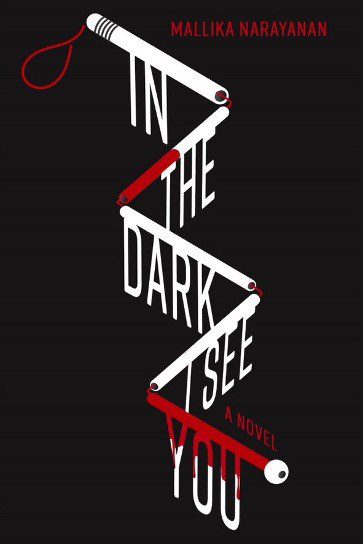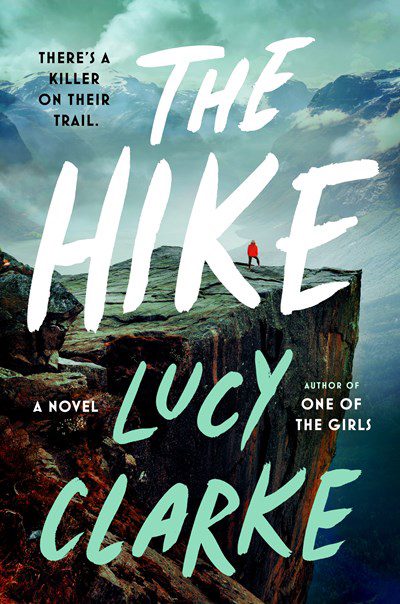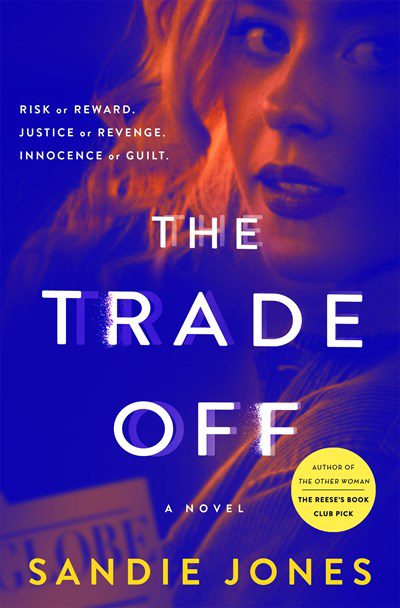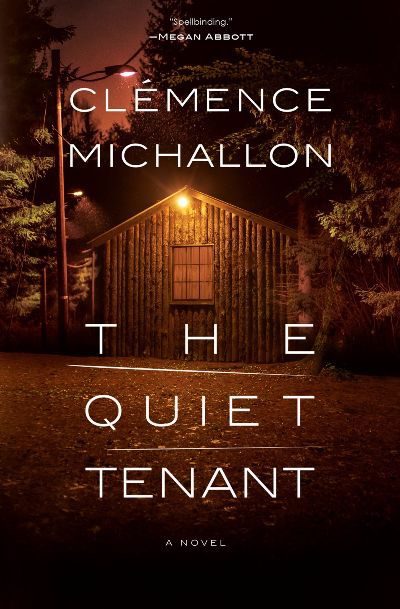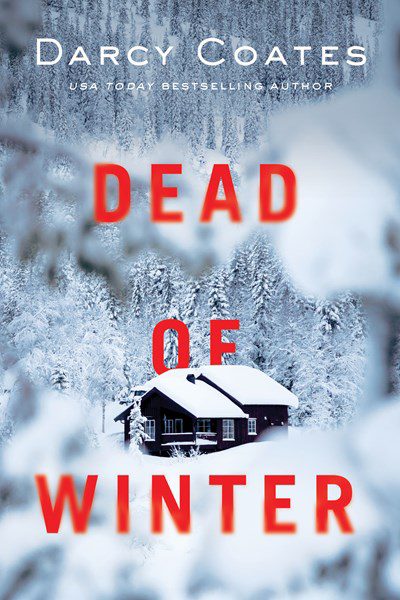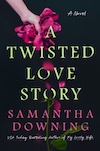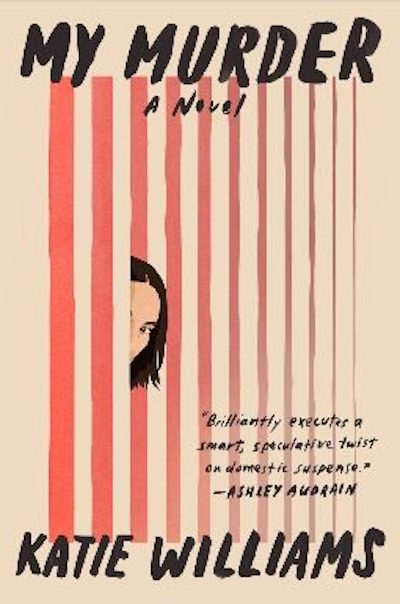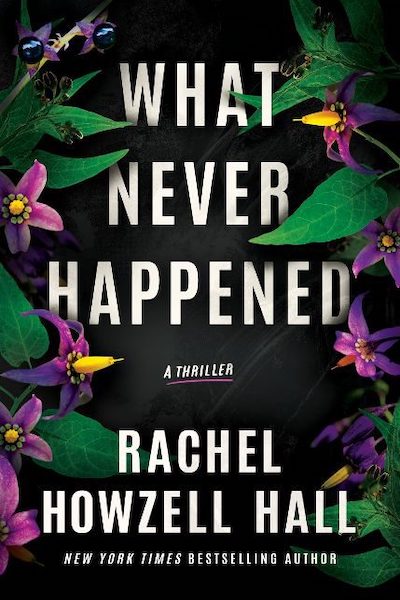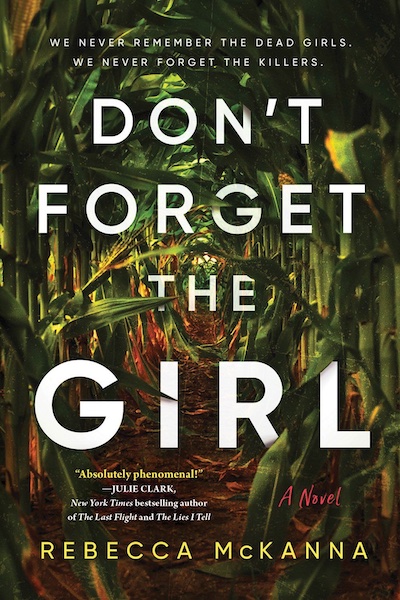Neighbors, amirite? Audrey has some of the worst: Bob, who won’t stop dropping in unannounced, and, worse again, Sarah, a new mom who expects Audrey to babysit regularly for free. Adding to her stress is that the neighbors are going through a spate of frightening break-ins, with odd things of only sentimental value targeted by the thief. What only Audrey and readers know is that a different kind of crime might be going on, as Audrey, who is blind, uses her considerable hacking skills, and her hacker comrades, to spy on Sarah. Her activities become suspect when she finds Sarah murdered in her home and is hauled in for questioning as the last known person to visit the murdered woman. This is Narayanan’s debut thriller, and her background in short-story writing serves her well, as the scenes here are structured as neat packages that leave readers wanting more. The author herself is not blind, but used a consultant reader who is, and the protagonist’s disability is thankfully more a fact of her life than a plot device. Readers who enjoy tension and twists are the audience for this Alice LaPlante readalike.
Psychological
A near-perfect novel of utopia-gone-wrong. Liz and her three female friends take a vacation together every year, typically somewhere with plenty of sun and a good bartender. But this year it’s Liz’s turn to pick, and needing a radical reset, she decides they’ll go mountain climbing in the gorgeous wilds of Norway. Gorgeous, but deadly. And—as the locals point out, not a climb for the inexperienced—which is all of them. Here’s a bit of what could go wrong: creepy, predatory males spying on them; killer storms; mud slides; loss of all provisions; no cell phone reception; and interference from a drug cartel. In addition, each woman manages to screw things up in her own way, like losing the trail or spraining an ankle, regularly setting them at one another’s throats. The novel builds slowly, we get plenty of insight into each woman’s personal life and the baggage she hopes to leave on the mountain, while the suspense blossoms beautifully. Richly atmospheric, well-plotted, with plenty of insight into female friendship, this should appeal to fans of Lisa Unger and Claire Douglas.
Do you look at Britain’s sleazy, salacious and exploitative tabloid culture and wonder: how do they get away with this? If so, this is the book for you. Set in the fictitious The Daily Voice, “the country’s top-selling newspaper”–it’s a whole lot like the real Daily Mail– the narrative alternates between tough-as-nails Stella, just a step away from being editor in chief, and newbie Jess, in from the country with, of all things, ideals. The “trade off” refers to the practice of exchanging one thing, say photographs of a naked leading man being led about on a dog leash, for what the tabloid really wants: a front page interview with him about his failed marriage. When this sort of celebrity manipulation goes awry–the beloved winner of a cooking show is hounded until she kills herself–Stella miraculously finds her much-dented moral compass and reluctantly pairs up with Jess. Inspired by #metoo, the two manage to dismantle the toxic misogyny and sexual harassment that’s at the center of The Daily Voice. Both characters have wonderful voices, and when you’re not cringing in horror you’ll be laughing aloud.
Did you like Emma Donoughue’s Room? French journalist Michallon’s debut (written in English as a challenge to herself) is for you. Trapped in a garden shed for years is Rachel—well, that’s the name her captor has given her–who’s chained to the floor, fed barely enough, and kept in mortal fear. “I won’t be happy” is her captor’s threat that keeps her in line, and maintaining his brittle composure is her daily struggle. She knows she’s next to his home where he has the life she longs for, with freedom and family. Suddenly, she gets the chance to partake in it, and maybe to escape—but is it all a trick? At the same time, we meet her captor, Aidan, in the outside world, where he’s barely recognizable as a monster who keeps a sex slave. He and his teenage daughter, Cecilia, are the focus of community sympathy and help following the recent death, from cancer, of Aidan’s young wife. The women are the stars of this book, and their inner lives and relationships will draw readers in from page one. “Rachel” obviously takes the central role, with Michallon doing a superb job of portraying her as a well-rounded character who lives in one room, her hopes, memories, and agonies doing the heavy lifting. But there’s also Cecilia, a girl we get to know intimately as she flounders in her grief and tries to make tentative forays outside her father’s strict control, and Emily, a woman who gets to know Aidan in the outside world and shows us a side of him, and of this kind of crime, that’s unexpected and compelling. Psychological drama at its best; the ending had me literally sitting forward, propelling the women on.
Have we been holding back on the raw carnage? If so, this book will more than make up for that. It’s winter, and Christa, our narrator, and her boyfriend, Kiernan, join a tour group of eight headed to a splendid lodge in the Rocky Mountains. But en route the weather turns nasty, a huge pine tree blocks their road, and they are forced to seek shelter in an abandoned hunting cabin as the snow piles up. Alarm bells ringing yet? The plot is squarely in the tradition of locked-room mysteries, more often locked mansions or islands these days, and we can expect our eight participants to slowly get bumped off thanks to poison, asphyxiation, or other genteel means. Well, that’s half correct. For most of the novel, the characters are locked in, thanks to the storm, unable to stray much beyond the cabin. But death in this novel is anything but genteel. In fact, it’s downright terrifying. But even more disturbing is Christa’s plight; obsessively assessing her peers to determine whom, if anyone, she can trust. Coates is also a horror author, and there’s a good dollop of that genre woven through this novel of high suspense. Keep a cat or two on your lap when reading this one.
Never has a book been more accurately named. Downing introduces a couple, Wes and Ivy, who are playing a dangerous love/hate game: they can’t stay away from each other but are mutually destructive, willfully so. When Wes receives a visit at work from a detective and finds out she’s from the sex-crimes unit, he knows there’s only one person who could have false-reported him: Ivy. Just for fun, she’s come back into his life after one of their multiple breakups. Also for kicks is her reporting of Wes as a stalker, and she’s languidly irritated when tenacious Detective Karen Colglazier wants to pursue an investigation. Ivy is done with the stalking ruse and needs the police to let it go, but for once she’s not calling the shots. Wes is losing control as well, not only because Ivy has come back into his life against all his friends’ wishes, but because, unknown to him, he has a coworker who may be an actual stalker. Bianca is a super-efficient assistant who arrives at work before everyone else and leaves after them, using her skeleton key and type-A façade to keep tabs on their personal and professional lives. The purpose? Keep reading for one of several delicious twists. This has “fantastic suspense movie” written all over it. While you’re waiting, try Downing’s For Your Own Good (2021).
Brilliant writing. Clever plotting. And a work of speculative fiction, set in a near-future world, that is totally fascinating. Lou is the fifth victim of a serial killer, leaving behind a lovely toddler and bereft husband. Until she—along with the other four victims—is brought back to life through a government program, the “replication committee,” that clones victims. Celebrities and women advocates, who took to the streets with a red gash painted across their necks—mimicking how the victims were murdered—drew attention to their plight. But understandably, adjustment to her old/new life isn’t easy, although a support group with the other women helps. Then Lou learns some things about her murder that raise some serious questions, making her wonder whom, if anyone, she can trust. Much of the beauty of this book lies in the details; Lou works as a touch therapist in a franchise in a strip mall, dispensing hugs to the emotionally needy. These sorts of facts build on each other slowly, creating a fascinating world, when all of a sudden the book takes several sharp turns that will leave the reader gasping. Addictive, fast, and smart.
Overtown, as California’s Catalina Island residents call the mainland, Disneyland has been closed. On Catalina, the ferries have stopped and even the St. Patrick’s Day karaoke is off. COVID is on the way, if it isn’t there already. But Collette “Coco” Weber has bigger worries. She’s back on the island where her parents and brother were murdered years ago, a crime against the only Black family on Catalina. Coco herself escaped as she had sneaked out against her parents wishes. She’s hardly in line with others’ wishes now, either. Aunt Gwen—famous for stealing trinkets from rich tourists—has been living in the house Coco inherited when her parents died, and isn’t thrilled to share it. And Coco’s determination to continue owning the house clashes with someone’s plan: there’s a housing shortage on Catalina, and she’s violently pressured to sell. At the same time, island widows are being found dead, alone in remote spots that they wouldn’t likely have visited without coercion. As Catalina gets ever more dangerous, a peril nicely juxtaposed against Coco’s job as an island newspaper obituary writer, readers will fall deeper into the compelling mysteries of who killed the protagonist’s family years before and who’s behind today’s mayhem. Hall’s writing of a PTSD-stricken protagonist rings true, with her “warts and all” presentation offering veracity, resilience, and exasperation in equal measure. Those new to the author will want to go back to her previous, also fast-moving puzzles such as last year’s We Lie Here.
It’s the rare writer who can create an intense, well-paced thriller while taking on one of the greatest social issues of our time. And Kia Abdullah is one of those few writers. Salma Khatun, her husband Bil, and their teenage son, Zain, have just arrived at a new development in the London suburb of Blenheim. They’ve left behind the far more diverse and comfortable community of Seven Kings for fear that Zain may be getting in with the wrong crowd. Will it be a fresh start or a crash landing? Here’s the first clue: the next-door neighbor rips Zain’s Black Lives Matter poster out of the front garden, and when Salma puts it in the window, they paint over the window! Things escalate from there, but in a manner that is free of cliché and grows from the characters, who represent a range of opinions and emotions. In a nice aside, Zain and the boy next door, both budding programmers, manage to strike up a friendship that leads to the development of a software for use by those with hearing impairments. But the story doesn’t end there, and where it does lead us is shocking, tragic, and damning. One of the best books I’ve read this year; I can’t wait to discuss this with a book group
First, there were three. Now only two women are left, estranged but still desperate to know what happened to their college friend Abby, who disappeared years ago. They might never know, as serial killer Jon Allan Blue, who killed other young women in the area around the same time, is about to be put to death. The two remaining friends can’t be more different. Bree is a college professor who’s having an affair with an underage student, which sets in relief the unending turmoil caused by Abby’s death. Chelsea is an Episcopal priest whose collar and steadfast demeanor hide an inner longing to break out of her marriage to a man who “looks like a photo of himself that [has] been left too long in the sun.” The two must interact again when a true-crime podcast covers Blue’s killings. The producer tries to convince Bree and Chelsea that their friend’s case deserves to be investigated, but with the show breathlessly feeding the media frenzy with comments like, “Friends don’t let friends get murdered” and Blue himself relishing the spotlight, participation seems counterproductive, not to mention tacky. While Abby’s fate is debated, we flash back to the three friend’s lives in the run up to her disappearance. This and the carefully posed exposé of podcast politics will leave readers looking differently at the spectacle that is the true-crime world, especially when it comes to women victims.

